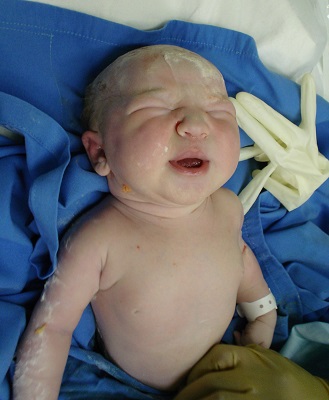I started the Life and Breath series, thinking the posts would be short and easy to write. I began the series after a friend asked me to dig up teaching notes from a dozen years ago. Having found the notes, I revised them and emailed them to my friend. So blogging on the subject meant cutting and pasting pre-written notes, right?
Nope. God continues to teach me. My “short” posts grew, along with my understanding. And, oh, the ground we’ve covered over the last five weeks.
A matter of life & breath: “The Spirit of God has made me; the breath of the Almighty gives me life” (Job 33:4). Yes! What’s true physically is also true spiritually: Breath is vital to life. Breath comes from God. Breathing requires inhaling and exhaling.
Inhaling the breath of God: Spiritual inhaling is receiving, Spirit-to-spirit, what the living, indwelling God breathes into you – his word, his grace, his riches, his character, his power, his joy, his mind, his heart – in short, his life.
Exhaling the breath of God: Spiritual exhaling is releasing what the living, indwelling God breathes into you, for the building of his kingdom and the honor of his name.
Breathing problems: People identified with the living God may feel dry and lifeless – and think there’s no help for it. Or they may believe they’re perking along spiritually as well as anybody – when in fact they’re critically short of breath.
God’s call to the breath-filled: When someone can’t breathe, it’s time to act. Often, however, the person with this problem cannot initiate action. Someone nearby who sees the need must act if the breathless is to breathe again.
So now, let’s press in to hear God’s cry to those who desperately need breath.

What Ezekiel prophesied
Ezekiel and John have helped us see: God’s people can have such acute breathing problems as to be spiritually comatose. God himself promises to revive those who are his own. He sends first responders to intervene and to shake awake those critically lacking breath.
If ever you feel hopeless and lifeless, if you become spiritually dry, you cannot initiate your own rescue. But you do choose how you will respond when help arrives.
Let’s look once more at Ezekiel’s message to the bones:
“Dry bones, hear the word of the Lord! This is what the Sovereign Lord says to these bones: I will make breath enter you, and you will come to life. I will attach tendons to you and make flesh come upon you and cover you with skin; I will put breath in you, and you will come to life. Then you will know that I am the Lord’” (Ezek. 37:4-6).
Three times, the Lord declares, “I will.” He will initiate. He will revive. He will restore. But also notice: Three times, the Lord declares, “you will.” Your life hangs on your receiving what God gives. Always, what he gives emanates from who he is.
Receive God’s word.
His part is to make known, personally, intimately. Our part is to know in our deepest being, to “receive implanted” what he speaks. When your Lord turns your direction and says, “Dry bones, hear the word of the Lord!” it’s vital that you recognize who is speaking. It’s vital that you receive his assessment of your situation.
“Hear the word of JHVH.” The eternal God here identifies himself by his unpronounceable covenant Name. In essence, he cries, “Hey! It’s me, the one true God, who has delivered you and made covenant with you.”
He cries to “dry bones.” Specifically, he addresses those who will recognize and admit, “Spiritually, I’m really dry. Others may not realize it, but deep inside I feel hopeless and lifeless. I know it and am willing to own it.”
God recorded Ezekiel 37:4-6 into Scripture so you can know: Any time, ever, that you recognize yourself lying scattered and broken like the dry bones in Ezekiel’s vision, the Living One has a message for you. It’s not a message of judgment. It’s not a command to “snap out of it.” Rather, it’s his promise to revive and restore.
Receive God’s breath.
“I will make breath enter you, and you will come to life.” “I will put breath in you, and you will come to life.” Twice the Lord affirms: His part is to give life. Our part is to receive it.
Receiving isn’t passive. It’s active. How many first responders have given mouth-to-mouth resuscitation, yet the breathless person didn’t revive? Breath was given – but it wasn’t received. The breath being poured in did not successfully trigger the person to inhale and exhale again.
What God breathes into us always has the capacity to restore and revive us, for he himself is the Resurrection and the Life. You will come to life – your spiritual vitality will be restored – as you quit fighting against him, or shutting yourself off from him, and let the breath of God trigger again your life breath. As you begin again to inhale and exhale, as you deeply receive what he is pouring into you and freely release his life to those around, you come out of your coma. You embrace abundant life.
“Then you will know that I am JHVH.” Ah, yes! Each time you deeply receive another breath, you know the Lord more intimately. You see and reflect more of his character and his ways. You marvel at the beauty of his holiness, his wholly-other-than-ness. You revel in his profound love for you and unfathomable faithfulness to you. Each time you release another breath, you live more fully from your God-given design. As you show forth your unique expression of his life, others are drawn to him and he is glorified in you.
When you’re spiritually dry, it’s tempting to refuse to let God breathe into you until you’re sure you can trust him again. But he says it doesn’t work that way. Rather, when you choose to trust him, to receive from him, regardless how abandoned you feel or how hopeless things seem, ahhhh, then, you live. Then, you know him who is your life.
What John wrote
What, then, did John cry to the Sardis church?
“These are the words of him who holds the seven spirits of God and the seven stars. I know your deeds; you have a reputation of being alive, but you are dead. Wake up! Strengthen what remains and is about to die, for I have found your deeds unfinished in the sight of my God. Remember, therefore, what you have received and heard; hold it fast, and repent” (Rev. 3:1-3).
The rest of this letter (vv. 4-6) reveals that “a few people” in the Sardis church had avoided such dire breathing problems. But let’s focus on God’s cry to the breathless. Again, the Lord begins by saying, “Hey! It’s me, your Lord, reminding you of aspects of my identity you need to know, crying out to expose the desperate situation you’re in.” See more about these aspects of the message to the Sardis church in the posts, “Breathing problems” and “God’s call to the breath-filled.”
Having established who he is and to whom he is speaking, Jesus tells the breathless what to do.
Wake up!
That’s a respond-to-this-cry cry. It’s a get-in-your-face-and-shake-you cry. It’s the heartcry of the person administering CPR. It’s God’s cry to anyone who belongs to him yet desperately lacks breath.
When a person tries to resuscitate someone physically, the breathless one may not be able to choose life. But when the One who raises the dead says, “Wake up!” you can wake up. And yet, God won’t force you. Jesus made that clear when he added, “But if you do not wake up, I will come like a thief, and you will not know at what time I will come to you” (Rev. 3:3).
When Jesus cries, “Wake up!” he’s made the way for you to do it. How you respond is your choice.
“Strengthen what remains and is about to die.” Sometimes in medical crises, people are hooked up to machines that move air into and out of their lungs. These ventilators “breathe” temporarily for patients who cannot breathe sufficiently on their own. For the person on a ventilator, breath remains, but only artificially. Existence can be maintained, but only a minimal quality of life. The goal and the hope is that the patients will regain strength to breathe on their own.
What’s true physically is also true spiritually. We were not made to live a life barely sustained by artificial breath. All who know Jesus as Lord have God the Holy Spirit living within us. As we’re filled with, and walk by, him who is the Breath, we enjoy profound spiritual vigor.
If you’ve accepted a maintaining-the-status-quo existence, rather than fully embracing God’s life, wake up! The Spirit may be quenched. He may be grieved. But don’t let the choices that have gotten you into this predicament dictate what you do now. The Lord has come to announce he can and will restore your life. Choose to cooperate with him. You can get off that ventilator and breathe on your own. Strengthen what remains and is about to die.
Remember how!
“Remember, therefore, what you have received and heard; hold it fast, and repent,” John cried to the Sardis church in Jesus’ behalf.
There it is again: Our part is to receive. In the Greek, Revelation 3:3 literally says, “Remember how you have received and heard.” If you know Jesus, you know how to receive what he is pouring out. You just need to remember.
So, may I ask you some questions?
Have you confessed with your mouth and believed in your heart that Jesus Christ is Lord? Has God the Spirit taken up residence in you? Have you taken your first breath?
If not or if you’re not sure, you may want to revisit the first post in this series, “A matter of life and breath.” Otherwise, remember: How have you received all God has entrusted to you, including salvation, eternal life, the living Word and the Spirit of God himself?
You’ve received everything God has poured out to you – Spirit-to-spirit. By faith:
“What we have received is not the spirit of the world, but the Spirit who is from God, so that we may understand what God has freely given us” (1 Cor. 2:12).
“The unspiritual self, just as it is by nature, can’t receive the gifts of God’s Spirit. There’s no capacity for them. They seem like so much silliness. Spirit can be known only by spirit — God’s Spirit and our spirits in open communion” (1 Cor. 2:14 MSG).
“He redeemed us … through Christ Jesus, so that by faith we might receive the promise of the Spirit” (Gal. 3:14).
You continue to live in the same way you began to live in Christ – Spirit-to-spirit. By faith:
“Therefore, just as you received Christ Jesus as Lord, continue to live your lives in him” (Col. 2:6 NET).
“Did you receive the Spirit by the works of the law, or by believing what you heard? Are you so foolish? After beginning by means of the Spirit, are you now trying to finish by means of the flesh?” (Gal. 3:2).
“For this wonderful news – the message that God wants to save us – has been given to us just as it was to those who lived in the time of Moses. But it didn’t do them any good because they didn’t believe it. They didn’t mix it with faith” (Heb. 4:2 TLB).
So then: Remember how you have received and heard; “hold it fast, and repent.” Once you recall how to breathe spiritually, keep doing it – and turn away from whatever cut off the process. Let God show you where you quit breathing, how and why.
Somewhere in your journey, did you begin trying to exhale without inhaling? Did you fall into the trap of attempting good works in your own strength, for your own glory? Have your many works left you exhausted and borne little fruit?
Did you begin trying to inhale without exhaling? Have you gained a lot of head knowledge about the Christian life, yet deep down feel empty? Do you keep trying to get more of Jesus, but honestly have little desire, strength or resources to help change others’ lives for good?
Whatever has cut you off from the breath of God, he will reveal it, if you will give him permission. Then, it’s up to you to renounce the deadly direction you’ve taken and to return to receiving and releasing his life.
What you can do
You were formed by God in your mother’s womb to live, not just to exist. You were born anew in Christ Jesus to live abundantly, not to stay hooked to a ventilator.
Today, if you feel hopeless and spiritually dry, here’s the beginning point for change: Acknowledge it. Quit denying. Stop trying to rationalize. Do not accept it as normal Christianity. And do not give up. If you can see your breathless state, the Lord your help has already arrived to intervene. Simply acknowledge what he is showing you.
Then, deliberately turn from how hopeless things may look, to receive what the Lord speaks personally to you. He says, “I will make breath enter you, and you will come to life. I will attach tendons to you and make flesh come upon you and cover you with skin; I will put breath in you, and you will come to life. Then you will know that I am the God who knows and loves you, who makes myself known to you and who keeps covenant with you.”
Hear the prayer going up for you: “Come, breath! Come from the four winds! Breathe into this slain one! Breathe life!”
Remember how you’ve received from your Lord in the past. Remember, and begin to respond to him again – your spirit responding to his Spirit, moment by moment, by faith. Tentatively at first, then more and more deeply: Inhale. Exhale. Inhale. Exhale.
As you receive and release the breath of God, you will rise up in strength and wholeness. You will connect with others in miraculous, healthy, mighty ways. You’ll make known the God you know.
Breath of God – the essence of all six Life and Breath blog posts in one article, with links to all the rest. Breathe deeply, beloved of God.
For an in-depth look at how spiritual breathing relates to reigning in life by grace, see my e-book, The Esther Blessing: Grace to Reign in Life.

















